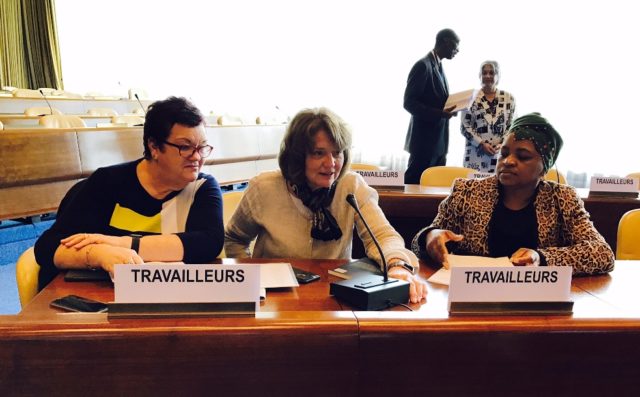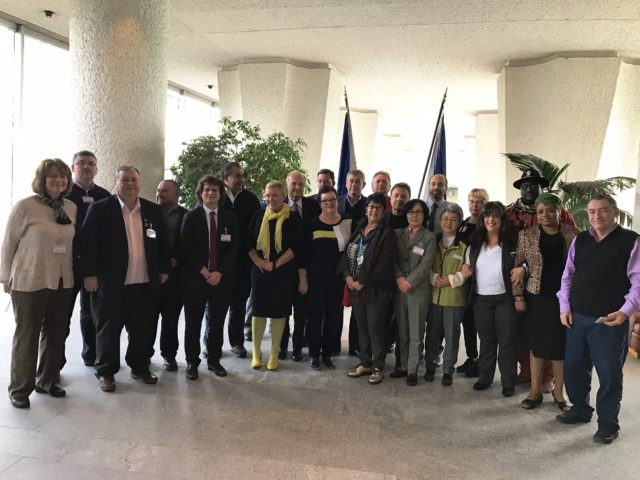HPAE Leaders Participate in International Meeting on Health Care

Ann Twomey (center) with Judith Kieja,New South Wales, Australia (left) and Rita Thandeka Msibi, South Africa (right)
HPAE President Ann Twomey and HPAE Secretary-Treasurer Barbara Rosen attended a meeting from April 24th to April 28th organized by the International Labor Organization (ILO) in Geneva, Switzerland to discuss strategies in the health sector that effectively address challenges and opportunities regarding employment and working conditions.
At the meeting there were eight representatives of unions, eight employer representatives, and representatives of various government. After discussing and exchanging ideas for three days, the participants agreed on a document to inform policy makers at national, regional, and international levels.
The document includes the following key conclusions:
1. Health care needs are increasing. There are inequities in access to health care. Quality health care should include primary and preventative care as well as home care and child care.
2. A shortage of nurses and healthcare workers is predicted to reach 18,000 million by the year 2030 in low income and lower middle income countries. Ethical and fair migration policies need to be promoted.
3. Health and safety issues, particularly in response to public health emergencies, epidemics and armed conflicts must be addressed. In addition workplace violence, protection from communicable diseases and prevention of injury must be provided.
4. Decent working conditions and good salaries are important to recruitment and retention.
5. Collective bargaining rights, freedom of association and non-discrimination policies should be respected and encouraged.
6. Promote international recognition and acceptance of health care worker qualifications and certifications and international labor standards.
7. Education and training for a new workforce as well as continuing education and skill building of current work force is imperative.
8. Gender equity issues need to be addressed especially policies that provide and protect maternity leave, parental responsibilities and promote work-life balance.
9. Private sector partnerships should be regulated and monitored. Funding for public services needs to adequately meet the needs of the population.
10. Regional meetings should be established for social dialogue between labor, government and relevant stakeholders to address issues on an on-going basis.
Photo below: Meeting participants

